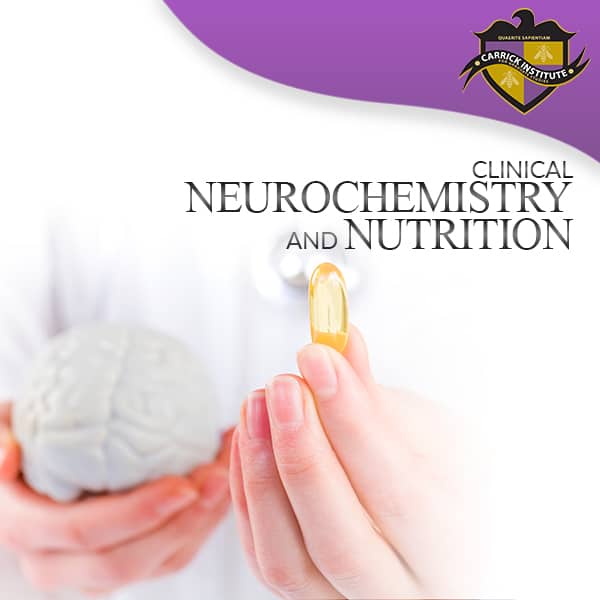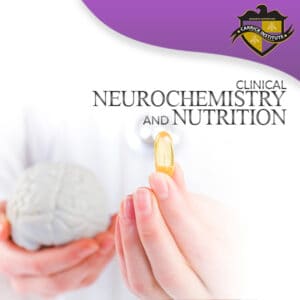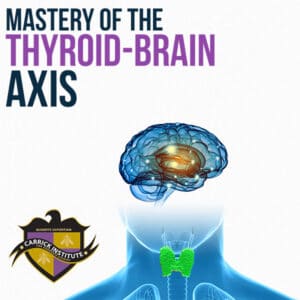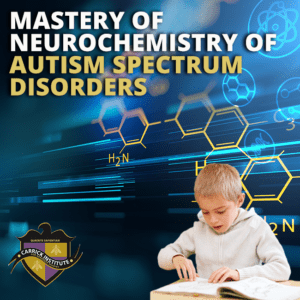Module 1: The 4 Neurochemical Priorities and Brain Basics
- How to Use This Course
- The 4 Neurochemical Priorities (never get lost!)
- The Road map
- Logistics of lab assessment
- How to order labs
- Who pays for labs?
- Blood Tests and Codes for this Module
- CBC
- Phosphorus
- Comp Metabolic Panel
- Magnesium
- Hemoglobin A1c
- LDH
- GGT
- How to Work Up a Real Patient
- Every Case Study details the patient’s presentation, work up, treatment plan and follow up.
- Case Study – 17 year old female with headaches, fatigue, neck/back pain
- The 10 Core Principles
- What Does a Brain Do?
- Global view of Brain function and purpose
- A primer on the evolutionary development of brain structure and function
- Structural Components of the CNS – Brain macrostructure
- Concepts of Neuron Structure & Function
- How Neurons Work – Thresholds and Potentials
- Neurotransmission, Transmitters and Receptors
- Dopamine
- GABA
- Serotonin
- Acetylcholine
- NMDA Receptors, Glutamate and Long-Term Potentiation
- Transneuronal Degeneration and Diaschisis
- The DARK Side of NMDA Receptors (creepy!)
- Excitotoxicity – what promotes it and what inhibits it
- Synaptic Integration
- Case Study – 27 year old woman with agitation and delirium
- Clinical Point on Ions
- sodium, potassium, calcium
- Glial Cells
- Macroglia
- Focus on Astrocytes
- Clinical Point on Aquaporins
- Oligodendrocytes and Schwann Cells
- Microglia
- Normal role and pathophysiological role
- Blood-Brain Barrier
- Neurovascular unit aka Gliovascular Unit
- What crosses and what doesn’t
- Membranes and Lipids
- Clinical Point on CoQ10 and Statin Drugs
- Case Study – 65 year old male with high cholesterol
- A Statin Alternative that actually works
- Amyotrophic Lateral Sclerosis
- When is ALS not ALS?
- A reasonable evidence-based approach to ALS
- Energy Metabolism in the Brain -glycolysis and oxidative phosphorylation
- Stroke
- What happens to energy production during and after stroke?
- Stroke-induced inflammation
- The Stroke-Migraine Continuum
- Epilepsy
- Pathophysiology
- Nutritional and Metabolic Factors to consider in Epilepsy
- The Ketogenic Diet for Seizures
- How to work up, manage and treat a patient with Seizures.
- Case – 10 year old girl with irritability, ADHD and recent seizure
- Case – 16 year old girl with Hashimoto’s, Brain Fog and Vomiting
- Case – 39 year old man with Seizures, dizziness and depression
- Case – 64 year old woman with concerns about her Hemoglobin A1c and Lipids
- Understanding Blood Chemistry – For each test:
- What physiology is actually being tested?
- What makes it high?
- What makes it low?
- What are the lab reference ranges?
- What is the functional/optimal ranges?
- Comp. Metabolic 14 PLUS
- Glucose
- Calcium
- Protein
- Albumin
- Globulin
- Sodium
- Potassium
- Chloride
- Carbon Dioxide
- Anion Gap
- BUN
- Creatinine
- eGFR
- Phosphorus
- Alkaline Phosphatase
- ALT
- AST
- GGT
- Bilirubin
- Hemoglobin A1c
- Lactate Dehydrogenase
- Special Section on Magnesium
- Normal roles in physiology
- Testing
- What makes it high?
- What makes it low?
- Magnesium in Migraine
- Magnesium in Stroke
- Magnesium in Chronic Pain
- Pattern Analysis of Blood Test Results
- Case – 63 year old man with hypertension, diabetes, edema and fatigue
- Case 66 year old woman with Diabetes and phospholipid antibodies
- More Blood Test results scenarios
Upon purchase, you will receive one year of access. Once you purchase this course, you will be able to access your course through the ‘My On-demand Learning’ tab instantly. This tab is under the ‘My Account’ tab when logged into the website. All sales are final.
Included in your Tuition:
- 25 hours of training with Dr. David Clark
- All access to the digital recording of the class
- Any future updates to the course videos or other materials
- Re-attendance for life – Retake the class on-site, via Livestream or via online, self-paced learning as many times as you’d like for attendance hours.
- 25 Neurology Hours towards the ACFN (American College of Functional Neurology) & ACNB (American Chiropractic Neurology Board) with each module
- Access to the flipped classroom with lifetime updates
- 3 months of unlimited access to Medline upon completion of the module







